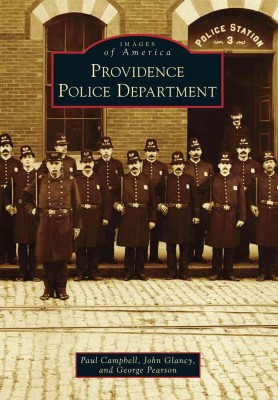| Providence Police Department Contributor(s): Campbell, Paul (Author), Glancy, John (Author), Pearson, George (Author) |
|
 |
ISBN: 1467122181 ISBN-13: 9781467122184 Publisher: Arcadia Publishing (SC) OUR PRICE: $22.49 Product Type: Paperback - Other Formats Published: July 2014 |
| Additional Information |
| BISAC Categories: - History | United States - State & Local - New England (ct, Ma, Me, Nh, Ri, Vt) |
| LCCN: 2014930609 |
| Series: Images of America (Arcadia Publishing) |
| Physical Information: 0.4" H x 6.4" W x 9.1" (0.70 lbs) 128 pages |
| Descriptions, Reviews, Etc. |
| Publisher Description: The Providence Police Department has served New England s second-largest city from its beginnings in 1651 with the appointment of a town sergeant to today s force of nearly 500 men and women. Officially established in 1864, policing in Providence has changed considerably from the days of night watchmen armed with handheld rattle alarms and nightsticks. Whether quelling the violent street riots of 1914, enforcing Prohibition, or fighting the New England mob, the PPD has evolved to meet the complex challenges posed by the city. It also boasts a history of leadership among the nation s law enforcement agencies, being among the first to incorporate women into the department s ranks, create innovative campaigns to reduce traffic fatalities, and pioneer the use of trained canines to aid in police work. Today, cutting-edge telecommunications and forensic analysis in crime fighting continue to protect the city of nearly 178,000." |
Contributor Bio(s): Campbell, Paul: - Paul Campbell is the former director of the Rhode Island Historical Society Library and the current archivist for the City of Providence. John Glancy served on the Providence Police Department for 27 years and retired as captain in 2003. George Pearson joined the Providence Police Department in 1978, serving in the patrol division and as a detective in the Bureau of Criminal Identification. Utilizing original materials from police files and other local archives, the authors chronicle the challenges of police work. |